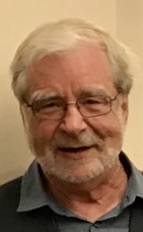The War Against Contemporary and Future Civilians
- Marvin T. Brown

- Mar 30, 2022
- 3 min read
Updated: Mar 28, 2023

As I wrote and rewrote A Climate of Justice, my view of civilians kept changing. I thought I had a clear notion when the book was published. The stories of Ukrainian civilians have certainly complicated my picture.
In the book’s four-fold interpretative framework—the Earth, our humanity, the social and the civic—I based the civic on the gathering of civilians. I defined civilians as vulnerable groups who could not protect themselves and therefor relied on the rule of law. Those who had resources to enforce the rule of law—citizens—had an obligation to protect and provide for civilians.
The basis for this approach was the 1949 Geneva Protocol for the Protection of Civilians that stated, for the first time, that combatants had a duty to restrain their aggression toward civilians. This Protocol is now recognized as part of International Humanitarian Law. I know it has been violated by us in Vietnam and in the Middle East, and by others, including Russia in Chechnya, Syria, and now Ukraine. Still, like the right to vote, it is a law that gives us a marker we can refer to.
All the third part of A Climate of Justice is about civilians: a theological analysis of their empowerment, an exploration of how citizens should relate to civilians, and a strategy for creating a climate of justice by responding to the invitation of civilians to both correct past injustices and to ensure just relations with future generations.
I tried to connect, in other words, our response to the needs of contemporary civilians with our response to the needs of future civilians: the children and grandchildren who will inherit the earth that we give them. I imagined something like a civilian review board as a place for engaging in the work of moving from a climate of injustice to a climate of justice.
Instead of a civilian review board, Putin has created a killing field for civilians. The Ukrainian government has said that women and children should escape the killing if possible, and the men should stay and fight. Men have picked up a gun to protect their homes and their liberty. So far, many of their homes have been destroyed, but not their liberty. Perhaps the war will end with Ukrainian’s national sovereignty intact, but what about the status of Ukrainian civilians?
As I have documented in my book, the killing of civilians has been part of our war strategy from Wounded Knee to My Lai. Such crimes against humanity (Maybe we should call them crimes against civilians.) have created the basis for our current climate of injustice. Putin is doing what we have done.
We have also used the military to protect civilians, such as during the Reconstruction period when Federal troops were stationed in the southern states to protect black civilians from white mobs. What we did not do then, and have seldom done, is to ensure that white men who flaunt the law do not act with impunity. We may not be able to protect civilians in a killing field, but at the very least we can hold those accountable who commit crimes against civilians.
Why not let it go if the fighting stops? We could, if we close our ears to future civilians who depend on us to give them a livable planet. What’s to stop the unsustainable practices of American Prosperity if we cannot stop the unjust practices of terrorists and bullies? If we do not enforce the laws to protect contemporary civilians, wherever they may be, what are the chances that we will pass laws to protect future civilians? Remember that many of the Ukrainian civilians are children, if we protect their future, we will be protecting the future for all of us.

very on point. Thanks!